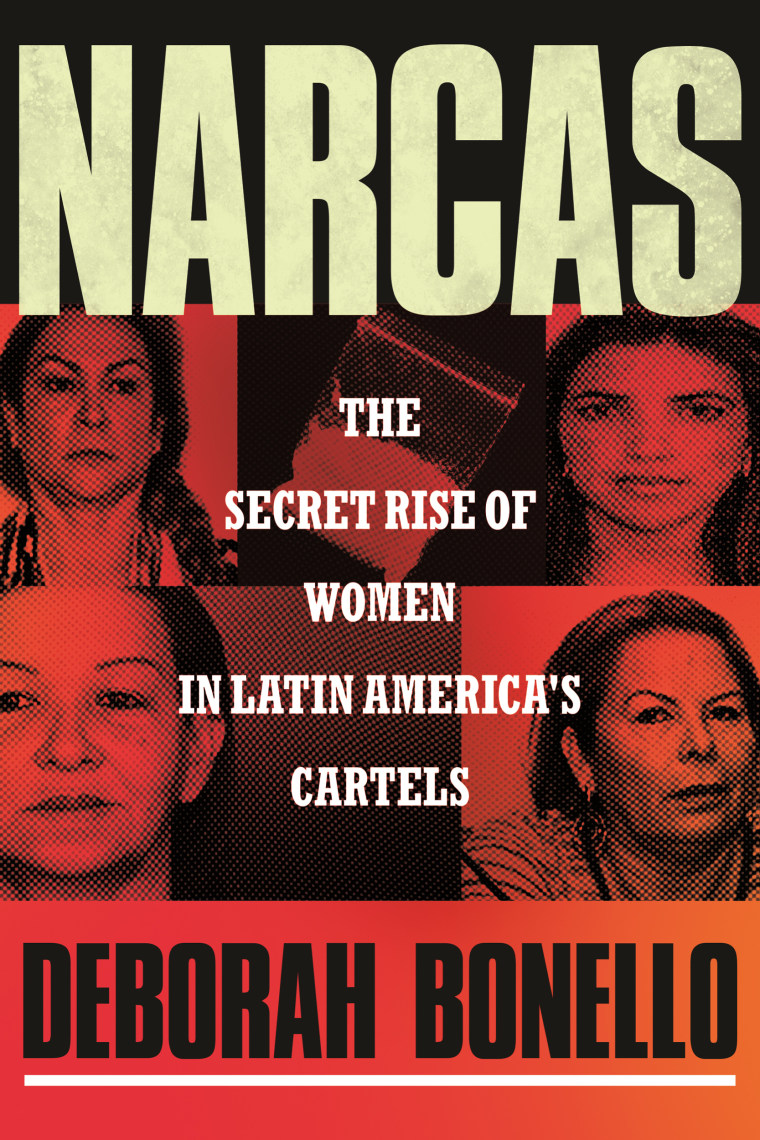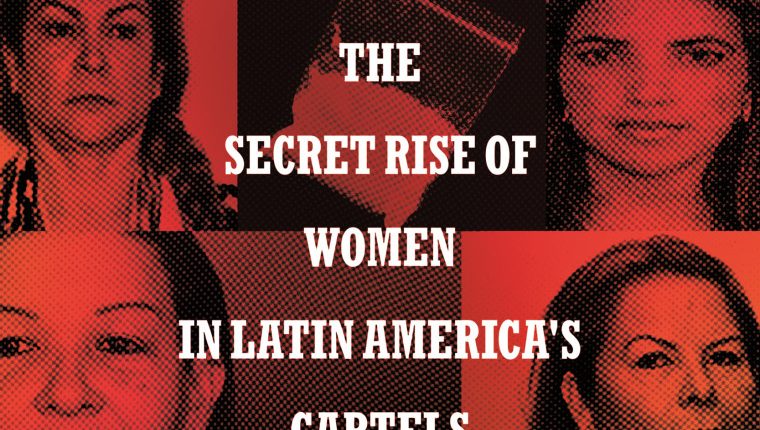Earlier this month, Colombian authorities arrested Venezuelan national Wanda del Valle Bermúdez Viera, better known as “the little baby of crime,” who was wanted by Interpol, the FBI and police departments across Latin America.
She was wanted for charges related to sexual exploitation, to extortion, distribution of firearms, contract killings and human trafficking, for which she collected of up to $7 million a month.
The story of Bermúdez Viera, who in 2019 allegedly created the group “Los Llaneros de Sangre Fría” in Peru — a faction of the Venezuelan criminal megagang known as El Tren de Aragua — has been widely disseminated by the Spanish-speaking media, which pointed to her social media presence showing her life of luxury and excess.
Bermúdez Viera is only one example of a much larger phenomenon: the rise of women in the most violent and dangerous structures of organized crime in Latin America.
A recent study by the International Crisis Group, an independent organization devoted to the analysis of security issues, found that the number of women charged with an offense related to organized crime grew from 5.4% in 2017 to 7.5% in 2021.
“While many of the women accused of belonging to criminal groups may be innocent, the ethnographic data collected by Crisis Group for this report and other expert analysis support the thesis that women are increasingly involved in these groups,” researchers stated in “Partners in Crime: The Rise of Women in Mexican Illegal Groups.”
While’s there’s no official data on the participation of women in organized criminal groups, media coverage indicates that they represent between 5% and 8% of the active personnel of these groups, according to the study.
“Sometimes, criminal organizations offer some women the opportunity to develop a leadership scheme,” explains Guadalupe Correa-Cabrera, a specialist in criminal organizations and an academic at George Mason University, who was not involved in the investigation. “And since prejudice and machismo make them invisible in some way — they can advance in those activities without being seen. And that is one thing that we have to increasingly understand.”
According to Crisis Group researchers, in these criminal organizations women occupy positions ranging from “low-level illegal activities solely for subsistence” to the highest positions. That is, some have become the bosses, or the “narcas,” criminal leaders who have been fundamental in the operation and, in some cases, the managers of entire structures.
“Something that surprises me a lot is the amazement of people who cannot believe that women know how to organize logistics, how to launder money, even how to execute violent operations,” said Deborah Bonello, a journalist specializing in security issues and the author of the recently published “Narcas: The Secret Rise of Women in Latin America’s Cartels,” which delves into the lives and crimes of some of the most powerful women in criminal structures such as cartels.

“If we see that there are women who are managing companies like Meta, banks, super large organizations, why is it so difficult for us to understand that they operate in the same way in the criminal world?” Bonello said.
Operating ‘from the shadows’
Bonello’s research concurs with Crisis Group’s findings about the important role that many women currently play in complex criminal structures such as drug cartels.
Although there are famous precedents for women’s incursions into these activities — such as the late Colombian Griselda Blanco and Chilean Yolanda Sarmiento — Bonello’s book depicts the rise and fall of other women who don’t fit the scandalous stereotypes forged by notorious criminals such as Pablo Escobar, the Rodríguez Orejuela brothers, and Joaquin “El Chapo” Guzmán.
“I feel that the cartels are not ideological organizations, but business organizations. And when they see that women can kill, launder money, transport merchandise, then they use their capabilities. They do not exclude them because they are women, it is a matter of money, of profits,” Bonello said.
In “Narcas,” Bonello tells the story of a number of women, including Mexican Guadalupe Fernández Valencia, who was the right hand of Chapo Guzmán; Sebastiana Cottón Vásquez, a Guatemalan peasant who rose to power within a male mafia; and Marllory Chacón Rossell, Cottón’s collaborator who, according to the DEA, ended up becoming one of the most prolific drug traffickers in Latin America.
It also examines the life of Digna Valle, a criminal matriarch from Honduras who was the female face of the brutal Valle cartel, as well as the Lemus sisters, who grew up in rural Guatemala and built up a brutal force that influenced the politics of their region.
According to the author, one thing that all these women share is their desire to exercise power from the shadows.
“Men like Pablo Escobar and El Chapo created the figure of the Latin American drug trafficker who, by definition, is male. Maybe it is a little naïve or sexist to think that the power of women is going to be the female version of that, as if they would behave like men. In general, I see that women have less desire to attract attention,” she said.
Bonello also highlights in her book that these women tend to enter the business of organized crime later than men. In addition, they create groups that are usually family-based, clans where husbands, children, cousins and other relatives participate. Many come from poor backgrounds with little formal education and few opportunities for legal employment that is as lucrative.
Bonello’s observations agrees with the Crisis Group’s findings in that criminal groups offer a form of protection that the State and the judicial system fail to provide. In many cases, joining an armed group can be a survival strategy and a way for these women to exercise power in environments where gender violence abounds.
These women overcome obstacles such as inequality, discrimination and machismo and skillfully accumulate large doses of power and crucial operational skills, and perform vital roles for the organizations. In many cases, those responsible for these hierarchical criminal networks tend to hide the fact that women lead many of their operations.
“I don’t doubt that there are very powerful women in drug trafficking, but we don’t know them, we don’t see them because they don’t fit into our way of understanding the world,” Bonello said. “We are not looking for them because, perhaps, we believe that they are going to behave like El Chapo — the reality is that they behave in a more subtle, more hidden way. I am sure that there are women who have become crucially important in these criminal groups.”
Often, Bonello said, the romantic or family ties of women in drug trafficking are used to minimize them or to marginalize their roles in the organizations. She cited Emma Coronel, El Chapo’s wife, as an example.
While it’s assumed that women are in these organizations by virtue of their relationships, according to Bonello, men are also in the business due to family connections, and yet it’s assumed the men’s influence is greater or more important. But that is not the case, according to her. “Women exist and, in many cases, are crucial to the success of these criminal organizations,” Bonello said.
Violent and brutal — with lasting repercussions
In most of the cases that Bonello included in her book, women have grown up in violent circumstances and often also carry out violent strategies in order to establish themselves in criminal circles. When participating in drug trafficking, if they are not the ones who kill, they have others who do it for them and generally enjoy the power and adrenaline that characterizes many of the operational actions.
“For example, Digna [Valle] operated in a brutal way when it came to protecting her family and the business. If that meant killing or letting her brothers rape the women of the town, she did it because she understood that is part of preserving power and are strategies to impose terror and control the local population,” Bonello said. “In the sense of managing violence, perhaps women do not do it so much with their own hands, but it’s not that they don’t know how to handle that because they can be very, very violent.”
In Mexico, where femicides and gender violence are an ongoing issue, the incursion and rise of women in organized crime is a reality that raises alarms.
“It is a general security problem. All the women I investigated brought their children into the business, as do men, because all organized crime in Latin America has to do with the family. So protecting the business is the same as protecting the family and defending oneself with one’s life, if necessary,” Bonello said. “I also believe that the figure of the wife, the girlfriend, the victim is so strong that Colombians and Mexicans find it difficult to believe that women have this capacity of being criminals.”
In “Narcas,” one of Bonello’s accomplishments is that she manages to dissect the stories of these women and analyze the effects of their crimes without glorifying them. The illegal nature of their activities and the profound repercussions on the countries they operate are present throughout the chapters.
“Organized crime is the greatest threat to public safety in this entire region because it affects the system of government and the laws, which is why my intention was never to celebrate them or exalt their criminal achievements,” Bonello said. “Rather, I feel that policies must be created to prevent women and men from getting into this business because, the truth is, it’s not convenient for them. Nobody survives.”
An earlier version of this story was first published in Noticias Telemundo.
Source: | This article originally belongs to Nbcnews.com










